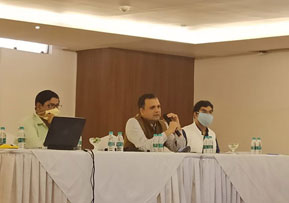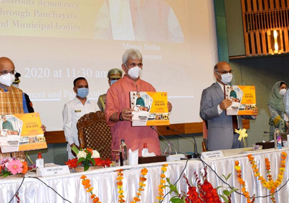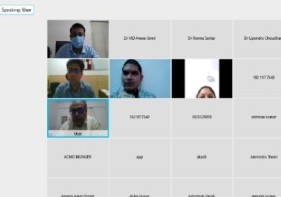Making News
Implementing QR Code to Strengthen Health System Response in Tracking and Management of Pregnant Women for Positive Outcomes
To overcome the challenge of sub-optimal tracking of pregnant women throughout their pregnancy by the health system via its’ frontline workers such as ANMs, the State of Odisha piloted MCP Cards with QR code. Each registered beneficiary is linked to a QR code in ANMOL app via their unique beneficiary ID. This allocated QR code is integrated with beneficiary’s MCP card which upon scanning with the ANMOL app links the ANC progress of each registered pregnant women.
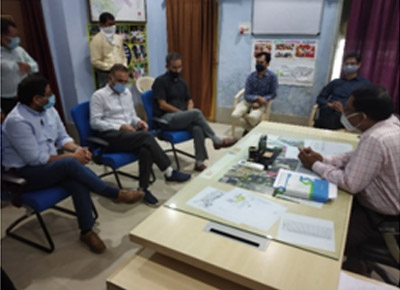
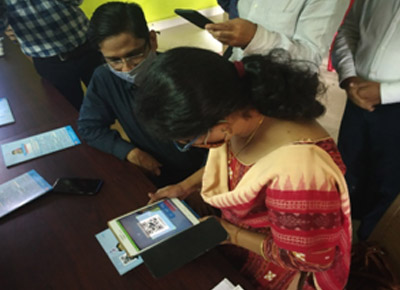
By scanning the QR code, each pregnant women’s data and progress can be accessed by ANM or other health functionaries at referral points to avoid duplicate entries for the same client and provide appropriate services as per schedule. The QR code also aids in delivering services to those beneficiaries who migrate from their registered address to other service delivery points. State of Odisha has entrusted Norway India Partnership Initiative (NIPI) with strengthening systems for successful registration and tracking of pregnant women by implementing integration of QR code with ANMOL.
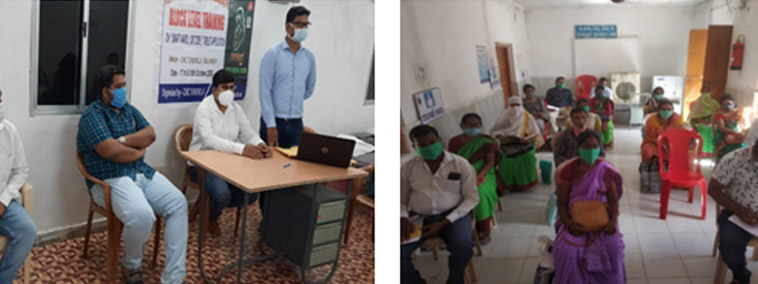
QR code functionality in ANMOL application was launched in district Balangir on Oct 17, 2020. The Collector & District Magistrate, Balangir inaugurated the event. Training of health staff began in seven CHCs on the very same day and six training sites were visited by the state team consisting of State Data Manager, District Data Manager, Deputy Manager Reproductive & Child Health and State Innovations Officer, NIPI.
NIPI National and state team visited three block CHCs of Balangir district for observing the training of health staff on implementation of QR code on Oct. 22, 2020. Team interacted with 31 ANMs, seven Health Workers-Male and five multipurpose health supervisors (MPHSs) on various aspects of QR Code functionality during implementation and to learn about their experiences. The participants shared that QR functionality will be extremely helpful to update the scheduled services in real-time.
Addition of QR code to the process will also reduce time taken to search the beneficiaries when they visit to access services as well as help prevent duplication of mother and child for service provided by the health system. Till date 414 service providers (243 ANM, 112 Male Health workers, 29 Male MPHS, 30 Female MPHS) have been trained on use of QR code functionality in ANMOL app. And, QR code has been successfully implemented in all 14 blocks of the Balangir district.
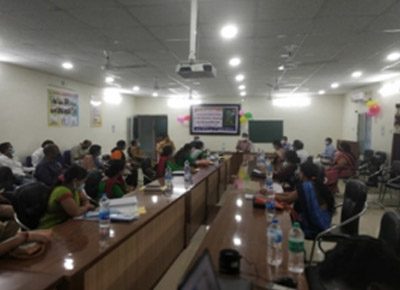
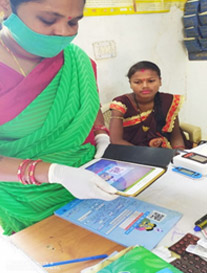
Further strengthening of QR code implementation through ANMOL application will help in strengthening tracking of High Risk Pregnancies in Balangir as well as in the state in times to come.
.jpg)
.jpg)
.jpg)
.jpg)
.jpg)
